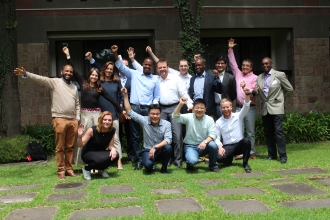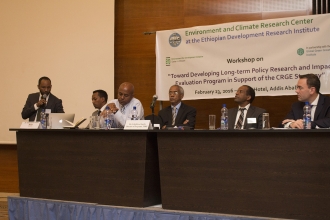Climate change has become one of the most important development challenges worldwide. It affects various sectors, with agriculture the most vulnerable. In Ethiopia, climate change impacts are exacerbated due to the economy’s heavy dependence on agriculture. The Ethiopian government has started to implement its Climate Resilient Green Economy (CRGE) strategy, which is planned to foster development and sustainability while limiting GHG emissions by 2030. However, to the best of our knowledge, research on estimating the economic impacts of CO2 emissions are limited.


